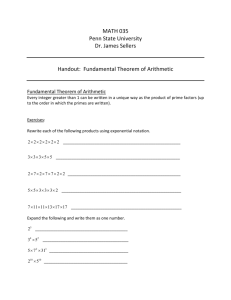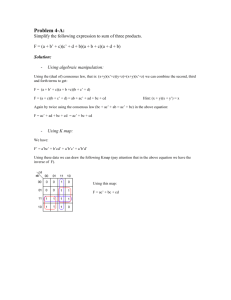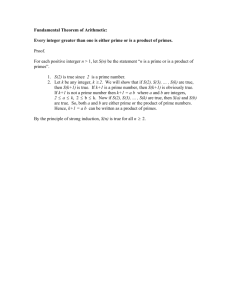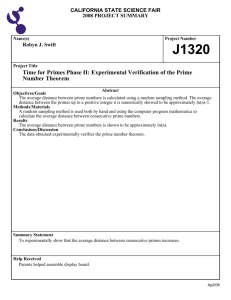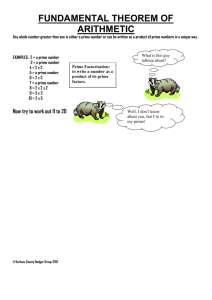translating English to predicate logic
advertisement
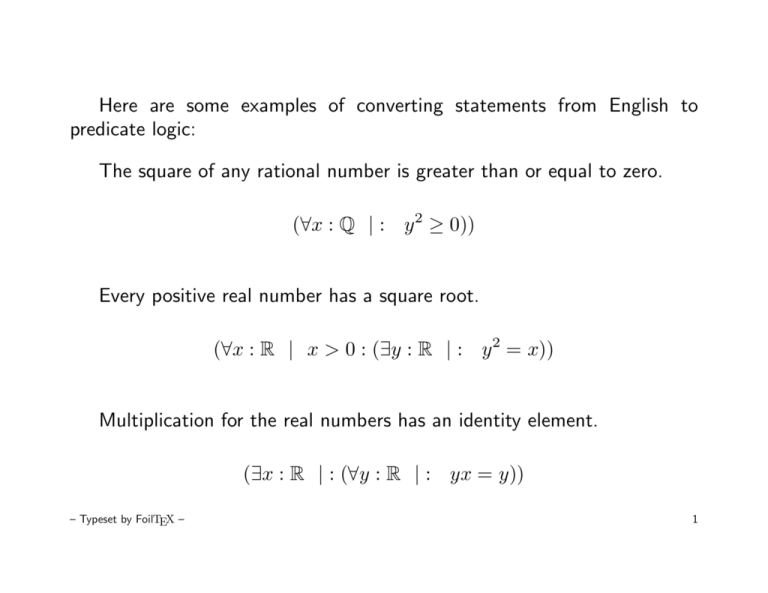
Here are some examples of converting statements from English to predicate logic: The square of any rational number is greater than or equal to zero. (∀x : Q | : y 2 ≥ 0)) Every positive real number has a square root. (∀x : R | x > 0 : (∃y : R | : y 2 = x)) Multiplication for the real numbers has an identity element. (∃x : R | : (∀y : R | : yx = y)) – Typeset by FoilTEX – 1 Every real number has a multiplicative inverse. (∀x : R | : (∃y : R | : yx = 1)) Every non-zero real number has a multiplicative inverse. (∀x : R | ¬x = 0 : (∃y : R | : yx = 1)) The only divisors of k are 1 and k. (∀i : N | : i|j ⇒ (i = 1 ∨ i = k)) The only divisors of k are 1 and k and k 6= 1; in other words, k is a – Typeset by FoilTEX – 2 prime number. (∀i : N | : i|j ⇒ (i = 1 ∨ i = k)) ∧ ¬k = 1 This can be abbreviated by defing a new predicate symbol to represent a Boolean valued function on the natural numbers. Let prime : N → B be defined so that prime.k = true if and only if k is a prime. Then the following defines the function prime in predicate logic: prime.k ≡ (∀i : N | : i|j ⇒ (i = 1 ∨ i = k)) ∧ ¬k = 1 Every number has a prime divisor. (∀j : N | : (∃k : N |prime.k : k|j)) – Typeset by FoilTEX – 3 Every number greater than 1 has a prime divisor. (∀j : N | j > 1 : (∃k : N |prime.k : k|j)) There are infinitely many prime numbers. (∀j : N | : (∃k : N |k > j : prime.k)) The natural number k is of the from n! for some n. (∃n : N | : k = (·i | 1 ≤ i ≤ n : i)) – Typeset by FoilTEX – 4


